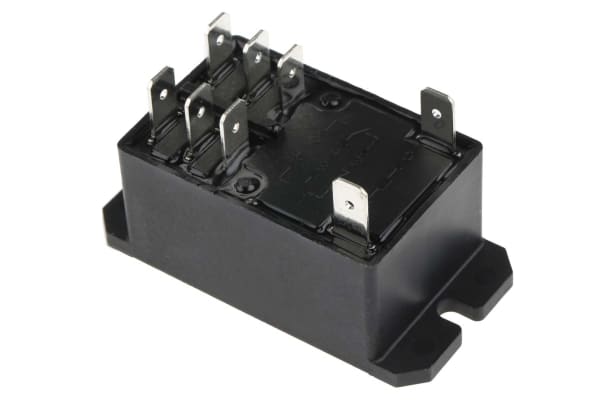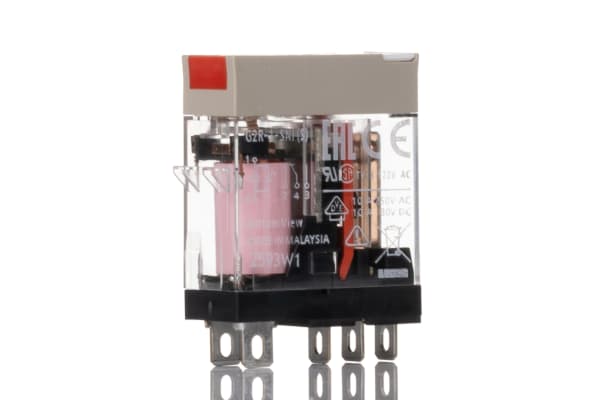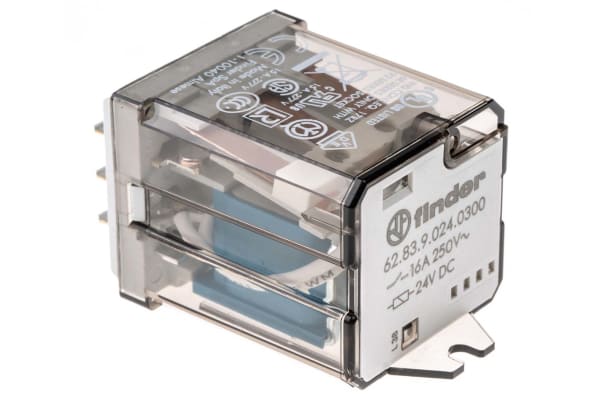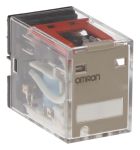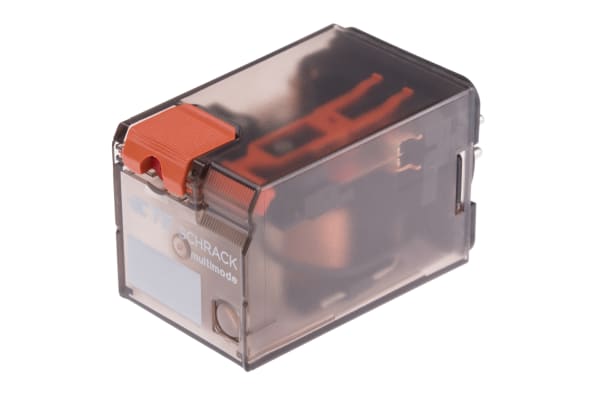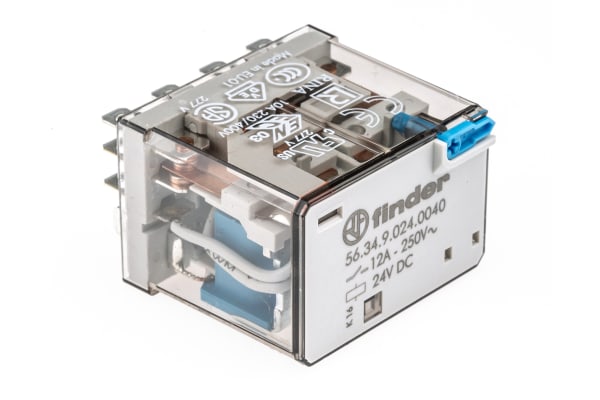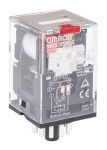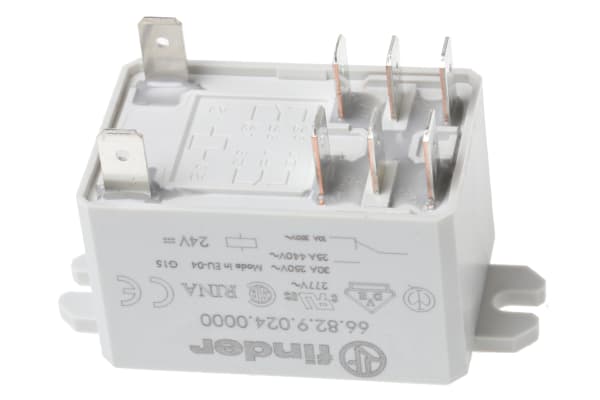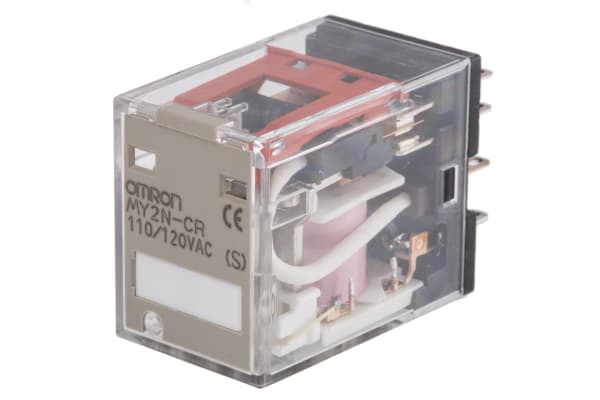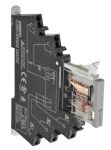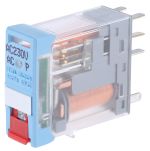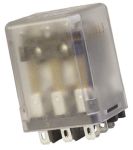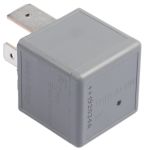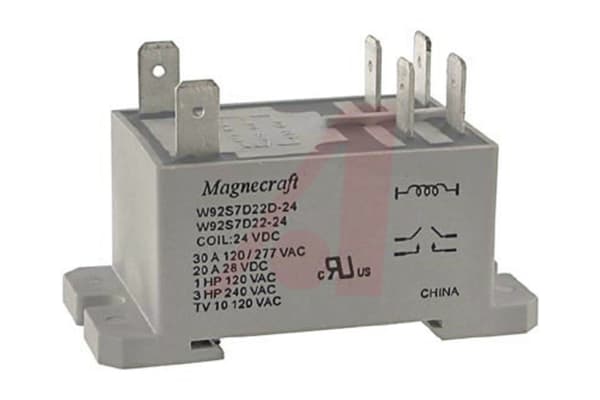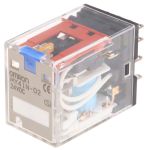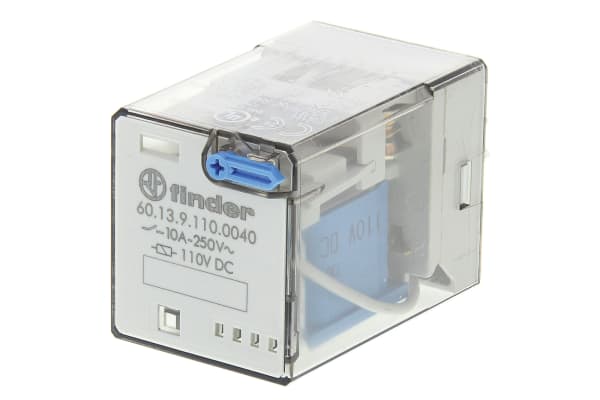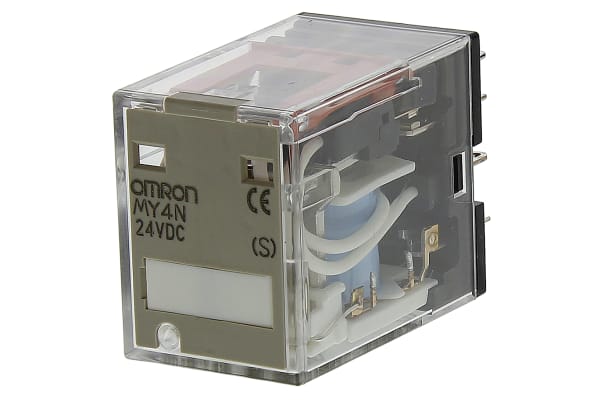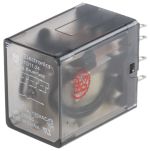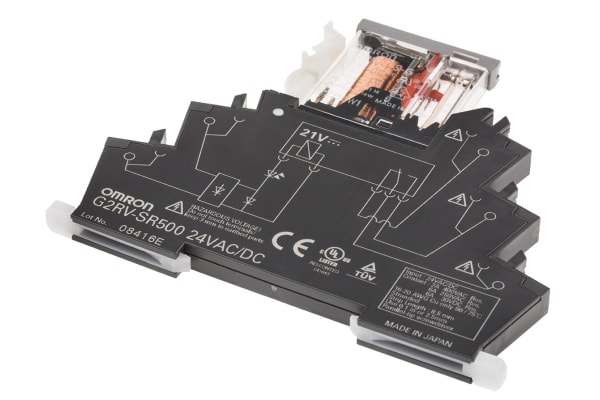Non-Latching Relays
Relays are electrical switches that are operated by electrical impulses with the primary function to open and close a circuit, they can also be referred to as industrial switches. There are 2 main types available, latching and non–latching relays.How do non-latching relays work?Non-latching relays are in a normally closed (NC) position and will stay in this state without power. When power passes through the circuit, the relay switched to a normally open (NO) position by using an internal coil to generate a magnetic force, holding this NO position. Once the current is turned off, it returns to the NC position. This makes non-latching relays well suited to push-button applications like keyboards and micro-controller input buttons.What are non-latching relays used for?Non-latching relays are highly durable and versatile components, making their performance long lasting and suitable for use in a wide range of applications, such as:Automotive enginesHousehold appliancesIndustrial machineryMedical equipmentTelecommunications equipmentWhat is the difference between latching and non-latching relays?Both types of relays in similar in design and function, however, a significant difference between them is that a latching relay will remain in the last position it when it was last powered, whereas a non-latching goes back to its normal position. This makes each more type of relay suitable for different applications. Considerations when selecting a relayWhen choosing a relay, it is important to consider a number of specifications to ensure it is fit for purpose, some factors include:Coil voltage – the required voltage to actuate the switching mechanism. If a voltage is too high this could damage the components, if it is too low then it will not actuate. Contact configuration – This is the state the contacts are in without power. For example SPST, single pole single throw.Contact material – the relay contacts are available in many materials that have certain properties. Common materials are gold, silver, tin oxide and nickel Coil power – the amount of power (watts) the coil operates at. This must match the power in the circuit for correct function. Coil resistance – the amount of resistance (ohms) in the circuit that the coil creates.
-
Omron, 24V dc Coil Non-Latching Relay SPDT, 10A Switching Current Plug In Single Pole, G2R-1-SNDI 24DC(S)
IDR184,081.95 -
Finder 12V dc Safety Relay - Dual Channel With 2 Safety Contacts , 0 Auxiliary Contact
IDR330,927.95 -
Omron, 24V dc Coil Non-Latching Relay DPDT, 5A Switching Current Plug In, 2 Pole, G2R-2-SNDI 24DC(S)
IDR318,760.71 -
TE Connectivity, 240V ac Coil Non-Latching Relay DPDT, 30A Switching Current Flange Mount, 2 Pole, T92P11A22-240
IDR401,309.14 -
Omron, 230V ac Coil Non-Latching Relay SPDT, 10A Switching Current Plug In Single Pole, G2R-1-SNI 230AC(S)
IDR440,118.44 -
Finder, 24V dc Coil Non-Latching Relay 3P-NO, 16A Switching Current Flange Mount, 3 Pole, 62.83.9.024.0300
IDR276,699.82 -
Omron, 24V dc Coil Non-Latching Relay DPDT, 10A Switching Current Plug In, 2 Pole, MY2N1-D2-DC24(S)
IDR303,446.77 -
TE Connectivity, 115V ac Coil Non-Latching Relay DPDT, 10A Switching Current Plug In, 2 Pole, MT226115 6-1393090-7
IDR326,207.90 -
Finder, 24V dc Coil Non-Latching Relay 4PDT, 12A Switching Current Plug In, 4 Pole, 56.34.9.024.0040
IDR322,222.08 -
Omron, 24V ac Coil Non-Latching Relay 3PDT, 10A Switching Current PCB Mount, 3 Pole, MKS3PIN-5 AC24
IDR252,155.56 -
Finder, 24V dc Coil Non-Latching Relay DPDT, 30A Switching Current Flange Mount, 2 Pole, 66.82.9.024.0000
IDR272,504.22 -
Omron, 120V ac Coil Non-Latching Relay DPDT, 10A Switching Current Plug In, 2 Pole, MY2N-CR AC110/120(S)
IDR391,554.37 -
TE Connectivity, 12V dc Coil Non-Latching Relay DPDT, 30A Switching Current Panel Mount, 2 Pole, T92S11D22-12
IDR379,806.69 -
Omron, 12V dc Coil Non-Latching Relay SPDT, 6A Switching Current DIN Rail Single Pole, G2RV-SR700 12VDC
IDR309,845.06 -
Releco, 230V ac Coil Non-Latching Relay DPDT, 5A Switching Current PCB Mount, 2 Pole, C12A21X230A
IDR391,029.92 -
TE Connectivity, 120V ac Coil Non-Latching Relay 3PDT, 10A Switching Current Plug In, 3 Pole, KUP-14A15-120
IDR424,070.27 -
RELAY POWER 70A 24VDC PLUG-IN
IDR360,402.04 -
Schneider Electric, 24V dc Coil Non-Latching Relay DPNO, 20A Switching Current Panel Mount, 2 Pole, 92S7D22D-24
IDR336,172.45 -
Omron, 24V dc Coil Non-Latching Relay 4PDT, 5A Switching Current Plug In, 4 Pole, MY4IN-D2 DC24(S)
IDR219,010.32 -
Finder, 110V dc Coil Non-Latching Relay 3PDT, 10A Switching Current Plug In, 3 Pole, 60.13.9.110.0040
IDR177,473.88 -
Omron, 24V dc Coil Non-Latching Relay 4PDT, 5A Switching Current Plug In, 4 Pole, MY4N24DCS
IDR369,632.36 -
Finder, 12V dc Coil Non-Latching Relay 3PDT, 10A Switching Current Plug In, 3 Pole, 60.13.9.012.0040
IDR334,599.10 -
TE Connectivity, 24V dc Coil Non-Latching Relay 4PDT, 3A Switching Current Plug In, 4 Pole, KHAU-17D11-24
IDR235,163.38 -
Omron, 24V ac/dc Coil Non-Latching Relay SPDT, 6A Switching Current DIN Rail Single Pole, G2RV-SR500 AC/DC24
IDR247,225.73






